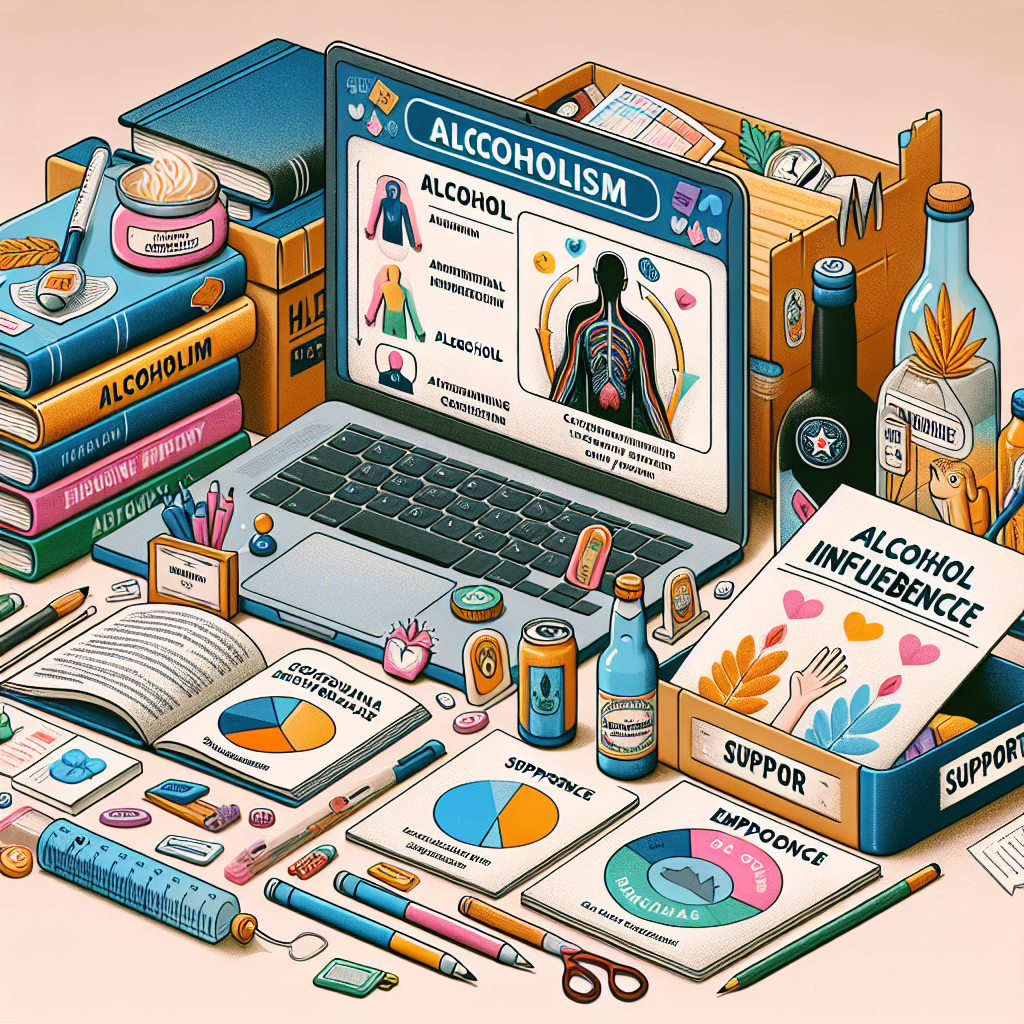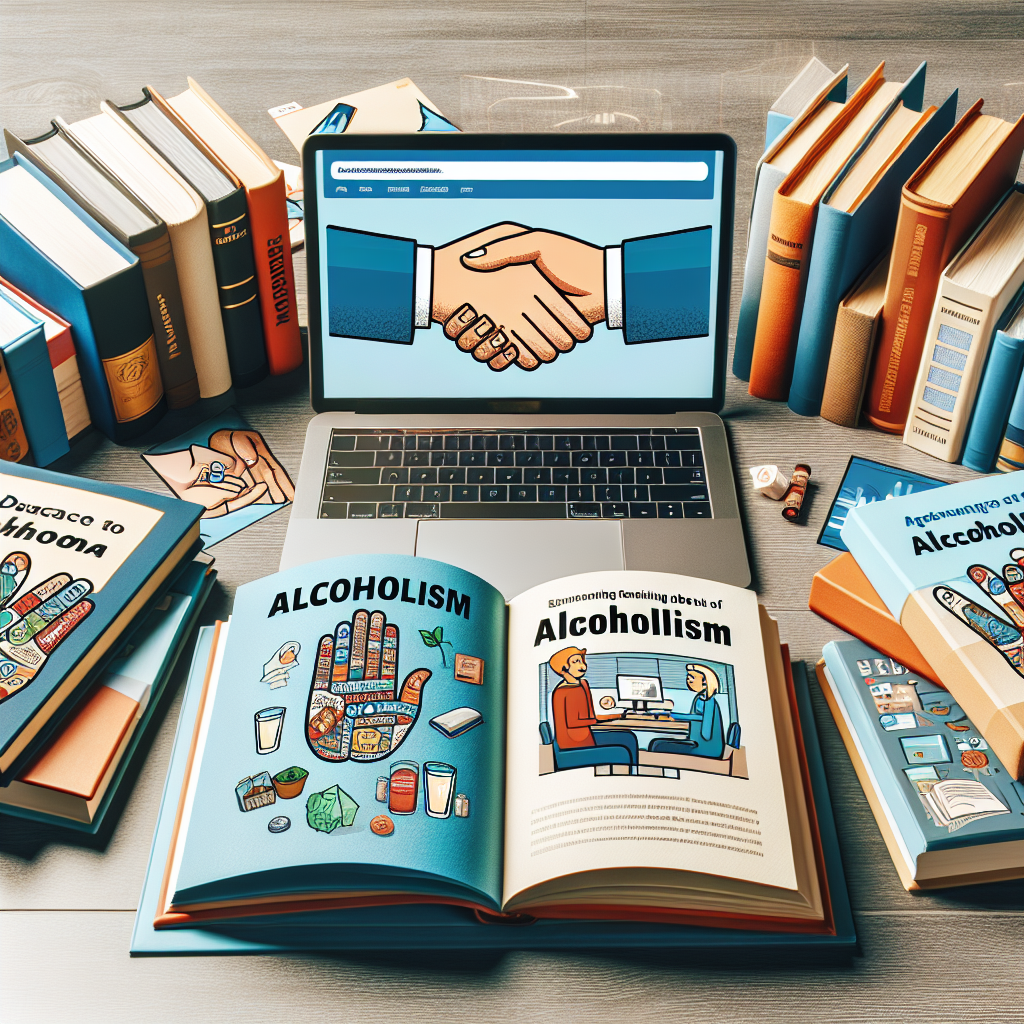-
Table of Contents

“Empower Your Support: Educate Yourself on Alcoholism to Help Your Loved One Thrive.”
Introduction
Educating yourself about alcoholism is a crucial step in providing effective support to a loved one struggling with this condition. Start by researching reputable sources such as medical websites, academic journals, and books written by experts in addiction and recovery. Understanding the nature of alcoholism, its symptoms, and its impact on both the individual and their family can provide valuable insights. Attending support groups like Al-Anon can offer practical advice and emotional support from others in similar situations. Additionally, consulting healthcare professionals, such as doctors or therapists specializing in addiction, can provide personalized guidance and resources. By equipping yourself with knowledge and understanding, you can offer more informed and compassionate support to your loved one on their journey to recovery.
Understanding Alcoholism: Key Resources and Strategies for Self-Education
Educating yourself about alcoholism is a crucial step in supporting a loved one who is struggling with this condition. Understanding the complexities of alcoholism can empower you to provide meaningful support and foster a compassionate environment. To begin, it is essential to recognize that alcoholism, or alcohol use disorder (AUD), is a chronic disease characterized by an inability to control alcohol consumption despite adverse consequences. This understanding can help you approach the situation with empathy rather than judgment.
One of the most effective ways to educate yourself about alcoholism is by accessing reputable resources. The National Institute on Alcohol Abuse and Alcoholism (NIAAA) offers a wealth of information, including research findings, treatment options, and strategies for prevention. Their website is a valuable starting point for anyone seeking to understand the scientific and medical aspects of alcoholism. Additionally, the Substance Abuse and Mental Health Services Administration (SAMHSA) provides resources and support for individuals and families affected by substance use disorders. Their helpline and online materials can offer guidance on navigating the complexities of alcoholism.
Books and literature on the subject can also be incredibly informative. Titles such as “The Big Book” by Alcoholics Anonymous and “Drinking: A Love Story” by Caroline Knapp provide personal insights and professional perspectives on the journey through alcoholism and recovery. These narratives can help you gain a deeper understanding of the emotional and psychological challenges faced by those with AUD. Furthermore, academic texts like “Treating Alcoholism: Helping Your Clients Find the Road to Recovery” by Robert R. Perkinson offer evidence-based approaches to treatment and support.
In addition to reading, attending support groups can be an invaluable part of your educational journey. Al-Anon and Alateen are organizations specifically designed for the friends and families of individuals with alcoholism. These groups provide a safe space to share experiences, gain insights, and receive support from others who are in similar situations. By participating in these meetings, you can learn effective coping strategies and develop a network of support that can be crucial in times of need.
Online courses and webinars are another excellent way to deepen your understanding of alcoholism. Many organizations offer free or low-cost educational programs that cover various aspects of AUD, from the biological underpinnings to the social and psychological impacts. These courses often include expert lectures, interactive discussions, and practical exercises that can enhance your knowledge and skills in supporting your loved one.
Moreover, engaging in open and honest conversations with healthcare professionals can provide clarity and direction. Doctors, therapists, and addiction specialists can offer personalized advice and answer specific questions you may have about your loved one’s condition. They can also guide you toward appropriate treatment options and support services, ensuring that you are well-equipped to assist in the recovery process.
Finally, it is important to practice self-care and set healthy boundaries. Supporting a loved one with alcoholism can be emotionally taxing, and it is essential to maintain your well-being to be an effective source of support. Engaging in activities that bring you joy, seeking your own therapy or counseling, and establishing clear boundaries can help you sustain your strength and resilience.
In conclusion, educating yourself about alcoholism involves a multifaceted approach that includes accessing reputable resources, reading relevant literature, participating in support groups, taking online courses, consulting healthcare professionals, and practicing self-care. By investing time and effort into understanding this complex condition, you can better support your loved one on their journey to recovery, fostering a compassionate and informed environment that promotes healing and growth.
Effective Ways to Learn About Alcoholism to Provide Better Support for Loved Ones
Educating oneself about alcoholism is a crucial step in providing meaningful support to a loved one struggling with this condition. Understanding the complexities of alcoholism can foster empathy, improve communication, and guide you in offering the right kind of help. To begin this journey, it is essential to recognize that alcoholism is a multifaceted disease influenced by genetic, psychological, and social factors. By delving into these aspects, you can gain a comprehensive understanding that will enable you to be a more effective support system.
One of the most accessible ways to start learning about alcoholism is through reputable online resources. Websites such as the National Institute on Alcohol Abuse and Alcoholism (NIAAA) and Alcoholics Anonymous (AA) offer a wealth of information, including research findings, personal stories, and practical advice. These resources can provide a solid foundation of knowledge, helping you to understand the symptoms, progression, and treatment options for alcoholism. Additionally, many online platforms offer forums and support groups where you can connect with others who are in similar situations, allowing you to share experiences and gain insights.
Books and literature on the subject can also be invaluable. Works by experts in the field, such as “The Big Book” by Alcoholics Anonymous or “Under the Influence” by James R. Milam and Katherine Ketcham, offer in-depth perspectives on the nature of alcoholism and recovery. These texts often include personal anecdotes and case studies that can help you relate to your loved one’s experiences. By immersing yourself in these narratives, you can develop a deeper empathy and a more nuanced understanding of the challenges they face.
Attending local support groups or educational workshops can further enhance your knowledge. Organizations like Al-Anon, which is specifically designed for friends and family members of alcoholics, provide a supportive environment where you can learn from others who have been through similar experiences. These meetings often feature guest speakers, including healthcare professionals and individuals in recovery, who can offer valuable insights and practical advice. Engaging in these communities can also provide emotional support, helping you to cope with the stress and uncertainty that often accompany a loved one’s struggle with alcoholism.
Consulting healthcare professionals is another effective way to educate yourself. Therapists, counselors, and addiction specialists can offer personalized guidance and answer specific questions you may have. They can also recommend resources tailored to your situation and provide strategies for effective communication and support. By seeking professional advice, you can ensure that you are well-informed and equipped to handle the complexities of your loved one’s condition.
In addition to these formal methods of education, it is important to engage in open and compassionate conversations with your loved one. Listening to their experiences without judgment can provide valuable insights and strengthen your relationship. It is crucial to approach these discussions with empathy and patience, recognizing that recovery is a long and often challenging journey.
Ultimately, educating yourself about alcoholism is an ongoing process that requires dedication and an open mind. By utilizing a combination of online resources, literature, support groups, and professional advice, you can build a comprehensive understanding of the condition. This knowledge will empower you to offer informed and compassionate support, fostering a positive environment that can significantly aid your loved one’s recovery journey. Through your commitment to learning and empathy, you can make a meaningful difference in their life, providing the strength and encouragement they need to overcome the challenges of alcoholism.
Q&A
1. **Question:** What are some reputable sources to learn about alcoholism?
**Answer:** Reputable sources include the National Institute on Alcohol Abuse and Alcoholism (NIAAA), Alcoholics Anonymous (AA), and the Substance Abuse and Mental Health Services Administration (SAMHSA).
2. **Question:** What types of support groups can help families of alcoholics?
**Answer:** Support groups such as Al-Anon and Alateen provide resources and community support for families and friends of alcoholics.
Conclusion
To educate yourself about alcoholism and better support your loved one, you should start by researching reliable sources such as medical websites, books by experts in addiction, and reputable organizations like the National Institute on Alcohol Abuse and Alcoholism (NIAAA) and Alcoholics Anonymous (AA). Attending support groups for families of alcoholics, such as Al-Anon, can provide valuable insights and emotional support. Additionally, consulting healthcare professionals and addiction specialists can offer personalized advice and strategies. Understanding the nature of alcoholism, its effects, and the available treatment options will equip you with the knowledge to offer informed and compassionate support to your loved one.



